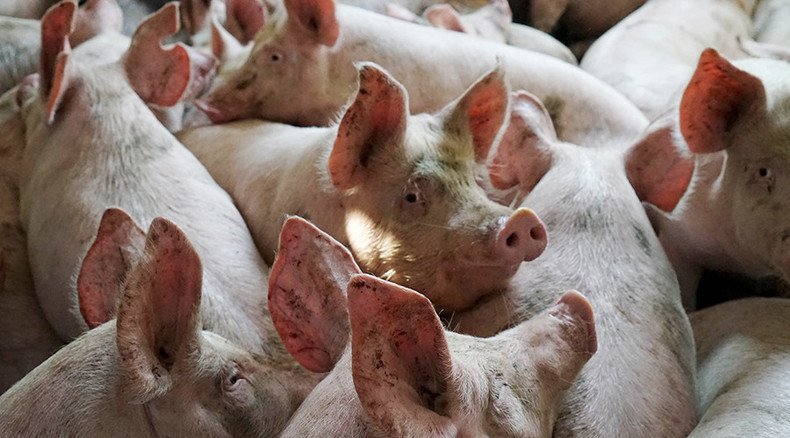Pigs get closer to becoming organ donors for humans after new gene modification

Researchers in the US have modified dozens of pig genes to enable their organs to be transplanted into humans. The viruses embedded in the pig genome, which have been feared to cause diseases in human recipients, have now reportedly been disabled.
In what is believed to be a big step forward in cross-species transplantation, a common pig virus that could invade human cells and cause disease has been dealt with. Called porcine endogenous retrovirus (PERV), the molecules responsible for the disease were identified in pigs over a decade ago, creating a problem for using pigs – whose organs including hearts, kidneys and livers are close in size to human body parts – for transplants.
Genetically modified pigs survive human stem cells transplantation http://t.co/oVwCoRhTWzpic.twitter.com/HngfoilUf7
— RT (@RT_com) June 6, 2014Over 60 PERVs, which are part of all pig genomes and cannot be treated, have been deactivated in pig embryos by a team led by geneticist George Church of Harvard Medical School in Boston, Nature journal reported this week. Calling such gene-edition a record – the number of genes edited in pigs is ten times more than for any other animal – the international weekly journal of science said the research “may have produced a suitable non-human organ donor.”
READ MORE: Spare parts for people? Stem cell-generated human intestine grown in lab mouse
Previous efforts to grow transplantable organs for humans in pigs have been hindered by the presence of these PERVs. Such pig viruses are feared to be dangerous for humans and could infect the organs to be transplanted. They have been deactivated by Church and his colleagues by using so-called CRISPR/Cas9 gene-editing technology. The result was presented this week at a meeting of the US National Academy of Sciences (NAS) in Washington on human gene editing, Nature reported.
Another problem for scientists working on making pigs suitable for growing organs for humans is possible rejection by the human immune system. In an effort to prevent this, the researchers also modified more than 20 genes in a separate set of pig embryos. The changed chromosomes include ones that encode proteins on the surface of pig cells that are known to trigger a human immune response or cause blood clotting, the report said.
READ MORE: Pentagon accused of pig victimization
Both sets of edited pig embryos are almost ready to implant into mother pigs, Nature cited the US researcher as saying. A company in Boston is now working on making the process as cheap as possible, he added.












